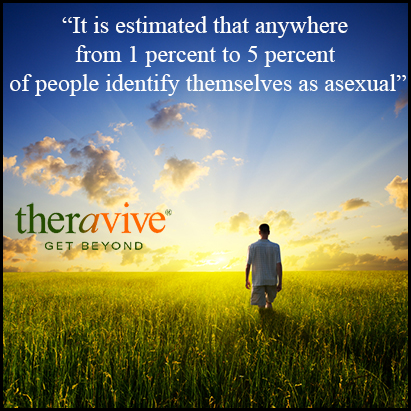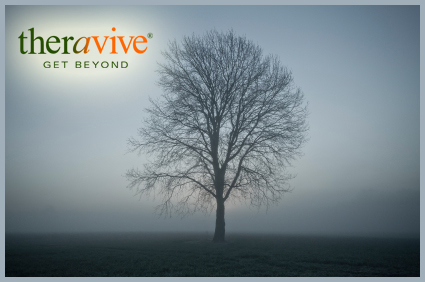 Obviously, with all the news as of late, there are a number of different things that the public has started to hear about the LGBT community. But did you know that there are a number of people who consider themselves part of this community, but have a different type of sexual orientation known as asexuality? Many people don't think about asexuality as a type of sexuality, but it is, and we're going to explore it a bit more in this article.
Obviously, with all the news as of late, there are a number of different things that the public has started to hear about the LGBT community. But did you know that there are a number of people who consider themselves part of this community, but have a different type of sexual orientation known as asexuality? Many people don't think about asexuality as a type of sexuality, but it is, and we're going to explore it a bit more in this article.
Looking at Asexuality
Asexuality is, in short, a lack of sexual attraction toward anyone or anything. But, the issue with this is that there is a huge umbrella that covers the asexual community. This includes people who are asexual, but still have romantic feelings toward others (which may be known as heteroromanticism or homoromanticism), demisexuality (people who are attracted toward others, but only after emotional attraction has been attained) and other areas of "grey asexuality," which are people who only have sexual attraction toward others in certain situations or circumstances.
For a long time, if you were asexual, there was assumed to be something wrong with you. This, of course, made it difficult for those who decided to embrace their asexuality. Many people who are asexual often feel pressured by peers and friends to get married or be in a relationship, but many times, they just want to be left alone about the whole thing. Some asexuals do end up in relationships and some even end up getting married, but it's often on terms that are very different than what the rest of the straight and LGBT communities have going on in their lives. Now, asexuality is no longer considered to be a disorder, and it is becoming more widely accepted to be asexual than it ever has been before.
Now, please note, this is not the same as sexual aversion disorder, which is a disorder that happens where people are completely averse to sex to the point of becoming physically ill or emotionally distraught. This is a completely different disorder, and unlike asexuality, likely needs to be treated by a professional who is able to help one become more comfortable with sexual intercourse and other similar ideas. Asexuality is not a disorder, at all, but a sexual orientation.
It's also not the same as celibacy. Just because someone has committed themselves to being celibate does not mean that they do not have sexual desire. Some who have chosen celibacy are asexual, but this is the exception rather than the rule. Most people who are celibate choose to do so for faith based reasons or other personal convictions, whereas asexuality is not a choice, it is a state of being. So be sure to keep that in mind when discussing asexuality as well.
If you are curious about asexuality, or want to learn more, the asexuality website at asexuality.org has a number of great resources that you can utilize in order to learn more about asexuality, aromanticism, and the realm of grey-asexuality.
 Is Asexuality Common?
Is Asexuality Common?
Asexuality is a lot more common than you may think, because so many things fall under the umbrella, like we talked about above. You may even know people who are asexual, but not realize it because they're in a loving and committed relationship. Others, however, may be people that you know that have been single for their entire lives and it's not much of a big deal to them anymore.
It is estimated that anywhere from 1 percent to 5 percent of people identify themselves as asexual, and when they identify themselves, they usually use phrases like "I don't feel sexual attraction toward anyone, but I love people just the same" or "I don't feel a need to have sexual intercourse (or even non-sexual interactions) with other people." It's not a choice, either. Like every other type of sexuality that is out there, it is just a result of the way that people are wired; some people are not wired to want or need sexual contact, and that is perfectly normal and healthy. Some asexuals even have some sort of a sex drive, but it's nothing more than a natural desire than the "culmination of a relationship."
The asexual community is becoming more and more noticed, and the Asexual Visibility and Education Network (AVEN) has been working hard to make that possible. They will have attended World Pride Day in Toronto this year, and they are looking to become more connected to the LGBT community. As time goes on, the asexual community will become more central to the world of sexual minorities. If you aren't sure about your sexuality, or are still exploring what it may be, seek out help from a clinical professional that you trust - they can help you through your journey.
_________________________________________________________________________________________________________________________________
Asexuality 101 | Asexual Awareness Week. (2013, September 15). Retrieved May 24, 2014, from http://asexualawarenessweek.com/asexuality-101/
Asexuality.org. (n.d.). The Asexual Visibility and Education Network | asexuality.org. Retrieved May 22, 2014, from http://www.asexuality.org/home/
Aven Wiki. (2013). Asexuality. Retrieved May 24, 2014, from http://www.asexuality.org/wiki/index.php?title=Asexuality
DePaulo, B. (2009, December 23). Asexuals: Who Are They and Why Are They Important? Retrieved May 22, 2014, from http://www.psychologytoday.com/blog/living-single/200912/asexuals-who-are-they-and-why-are-they-important
Tremonti, A.M. (2014) Asexuality is a sexual orientation, not a disorder. Retrieved May 22, 2014, from http://www.cbc.ca/thecurrent/episode/2014/05/20/asexuality-is-a-sexual-orientation-not-a-disorder-1/
About the Author
 Marti Wormuth, MA
Marti Wormuth, MAMarti has a Bachelor’s Degree in Sociology and a Master’s in Communication Studies. Her favorite activities include reading, playing games, and hanging out with the students at her church. Marti volunteers with the youth ministry at her church as a teacher and mentor. Because of this, she recently started another degree, her graduate certificate in student ministries. She considers her current graduate work to be a stepping stone to becoming a youth pastor or a published author.
Professional Website:
martis-miscellany.com/